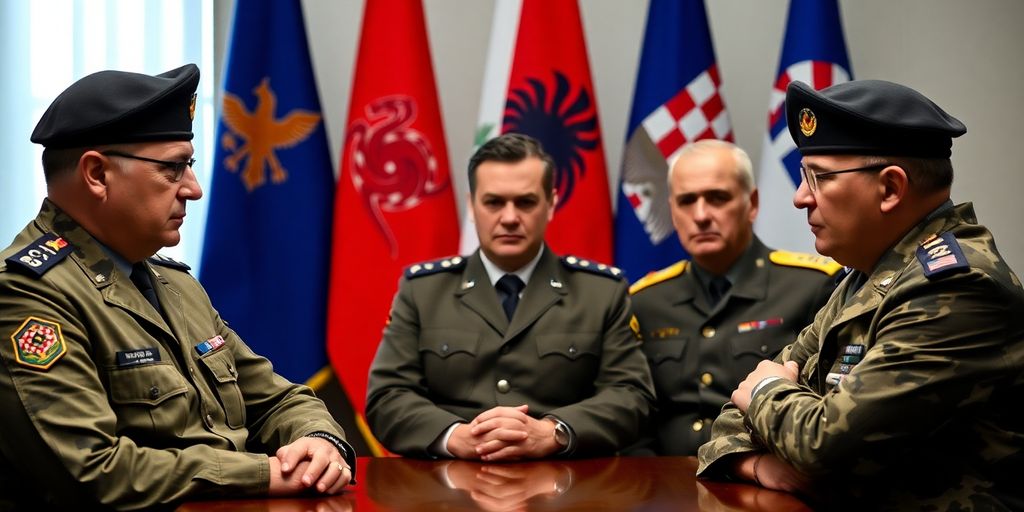Tensions have escalated in the Balkans following the recent signing of a defense pact between Kosovo, Albania, and Croatia. This agreement aims to enhance military cooperation and regional security, but has drawn sharp criticism from Serbia, which does not recognize Kosovo’s independence.
Key Takeaways
- Kosovo, Albania, and Croatia signed a trilateral defense cooperation agreement.
- Serbia demands clarification on the pact, viewing it as a threat to regional stability.
- The agreement is seen as a step towards Kosovo’s integration into Euro-Atlantic structures.
- Serbian officials warn of an arms race in the region due to this military alliance.
Background of the Defense Pact
On March 19, 2025, defense ministers from Kosovo, Albania, and Croatia convened in Tirana to sign a declaration aimed at strengthening defense capabilities and enhancing military interoperability. The pact includes provisions for joint training exercises and the advancement of military technology among the three nations.
Kosovo’s Prime Minister Albin Kurti hailed the agreement as a significant move towards ensuring peace and security in the region. He emphasized the importance of regional cooperation in addressing security challenges and hybrid threats.
Serbia’s Response
In response to the defense pact, Serbia’s Foreign Ministry issued a statement demanding an explanation from Albania and Croatia regarding their collaboration with Kosovo. Serbian officials argue that the agreement undermines regional stability and violates Serbia’s position as a guarantor of peace in the Balkans.
Serbian President Aleksandar Vucic expressed concerns about the potential for an arms race, stating, "It is a difficult situation for us, but we have understood their message. And we will protect our country, deter them, and always successfully defend it from any potential aggressor."
Regional Implications
The signing of the defense pact has sparked a diplomatic spat, with Serbian officials labeling it a provocative initiative. Serbia’s Defense Minister Bratislav Gasic criticized the agreement, asserting that it contradicts efforts to strengthen regional security. He emphasized that Serbia would continue to modernize its armed forces in response to perceived threats.
Croatian Defense Minister Ivan Anusic countered Serbia’s claims, stating that Croatia does not require Serbia’s approval for its defense agreements. He highlighted that the cooperation focuses on knowledge exchange and support for the Euro-Atlantic aspirations of both Albania and Kosovo.
Future Prospects
The defense pact has the potential to reshape the security landscape in the Balkans. As Kosovo seeks closer ties with NATO and the European Union, the agreement may facilitate its integration into broader Euro-Atlantic structures. However, the ongoing tensions with Serbia pose significant challenges to achieving lasting peace in the region.
Kosovo’s Foreign Minister Donika Gervalla-Schwarz condemned Serbia’s threats, asserting that without recognizing Kosovo’s independence, Serbia cannot contribute to regional stability. The situation remains delicate, with both sides needing to navigate their historical grievances while seeking a path toward cooperation and peace.
As the situation develops, the international community will be closely monitoring the implications of this defense pact and its impact on regional dynamics in the Balkans.
Sources
- Kosovo—Country Climate and Development Report, World Bank.
- Serbia demands explanation from Albania, Croatia defense pact with Kosovo, Anadolu Ajansı.
- Serbia Angered by Defence Pact Linking Croatia, Albania and Kosovo, Balkan Insight.






